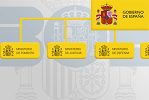Unfair commercial practices
Content
Firstly, a distinction must be drawn between unfair commercial practices and the inclusion of unfair contract terms.
What are unfair commercial practices?
Unfair commercial practices are any business-to-consumer practices involving act, course of conduct or commercial representation (including advertising and marketing) by a trader that is objectively contrary to the requirements of professional diligence and good faith.
This definition covers two main types of unfair commercial practices:
- Misleading practices, either through action (giving false information) or omission (leaving out important information).
- Aggressive practices whereby consumers are pressured into buying.
Such practices affect the behaviour and decisions of the consumers they are aimed at, and may lead those consumers to make a decision on a purchase which, had there been adequate information and clarity, they would not have taken.
Business-to-consumer commercial practices to be regarded as unfair in all circumstances
These commercial practices are unfair ‘in all cases and under any circumstances’. They include:
- Misleading practices in relation to codes of conduct or other quality marks, such as when a trader falsely claims to adhere to a code of conduct, or when a trust mark, quality mark or equivalent mark is displayed without the necessary authorisation having been obtained.
- Bait advertising and misleading promotional practices, where, for example, the trader makes an ‘empty offer’ by advertising a product or service at a particular price, usually very competitive, in order to attract consumers, but does not have sufficient stock to be able to meet the foreseeable demand, or where a consumer is informed that he has won a prize, but no prize is then awarded.
- Misleading practices in relation to the nature and properties of goods or services, their availability and after-sales services, such as falsely claiming that a product or service can cure illnesses, dysfunctions or malformations.
- Pyramid selling practices, such as creating, operating or promoting a pyramid selling scheme in which the consumer or user pays a consideration in exchange for the opportunity to receive compensation that is derived primarily from the introduction of other consumers or users into the scheme, rather than from the sale or supply of products or services.
- Misleading practices which create confusion by promoting a product or service which is similar to one marketed by another trader, in order deliberately to mislead the consumer or user into thinking that the product or service in question is supplied by that other trader, when it is not the case.
- Covert marketing practices, whereby content in the media is used to promote a product or service, and the trader has paid for that promotion without making it clear, either in the content or by images or sounds clearly identifiable by the consumer, that it is an advertisement.
- Other misleading practices, such as presenting rights given to consumers in law as a distinctive feature of the trader or company's offer; passing on inaccurate or false information on market conditions or on the possibility of finding the product or service with the intention of inducing the consumer or user to acquire it under conditions which are less favourable than normal market conditions.
- Aggressive practices using coercion, such as causing consumers or users to believe that they cannot leave the trader's establishment or premises until a contract has been signed, unless such conduct constitutes a criminal offence.
- Aggressive practices using harassment, such as conducting personal visits to consumers or users’ homes, ignoring their requests to leave or not to return.
- Aggressive practices in relation to children, such as including in an advertisement a direct invitation to children to persuade adults to buy the advertised goods or services for them.
- Other aggressive practices, such as explicitly informing consumers or users that if they do not buy the product or service, the trader’s job or livelihood will be in jeopardy.
What are unfair terms?
Unfair terms are terms that have not been individually negotiated but imposed by the trader without being discussed, as well as all practices not expressly agreed to which, contrary to the requirement of good faith, cause a significant imbalance in the parties' rights and obligations arising under the contract, to the detriment of the consumer and user.
Unfair contract terms are automatically null and void and deemed not to have been entered into.
Only a court is authorised to find that an unfair term included in a consumer contract is void; the contract remains binding for the parties as long as it can continue to exist without that unfair term.
Types of unfair terms
Terms are always to be regarded as unfair if they:
- Make the contract dependent on the wishes of the trader, for example by automatically extending a contract of fixed duration where consumers or users do not indicate otherwise and where the deadline for consumers or users to express any desire not to extend the contract effectively makes it impossible for them to do so.
- Limit the rights of consumers or users, for example by inappropriately excluding or limiting the legal rights of consumers or users in the event of total or partial non-performance or inadequate performance by the trader.
- Determine that there is no contractual reciprocity, for example by imposing obligations on consumers or users to fulfil all their responsibilities and the payment of consideration even when the trader does not fulfil its obligations, or allowing a trader to keep pre-payments made by consumers or users if they cancel the contract without allowing for equivalent compensation to consumers or users where it is the trader that cancels.
- Require consumers or users to provide guarantees that are disproportionate to the risk taken, or unduly impose upon them the burden of proof when this should lie with another party to the contract.
- Are disproportionate in relation to the conclusion or performance of the contract, such as those which pass onto the consumer handling and document costs that by law should be borne by the trader.
- Contravene the rules on jurisdiction and applicable law by expressly conferring jurisdiction on a court or tribunal other than that corresponding to the place of residence of the consumer or user, the place of performance of the contract or the place where the asset is located, if it is an immovable asset.
The full list is set out in Articles 85 to 90 of the consolidated text of the General Law for the Protection of Consumers and Users and other supplementary laws approved by Royal Legislative Decree No 1/2007 of 16 November. See below for a link to that legislation.
Information for each Autonomous Community






Andalucía Aragón Asturias, Principado de Balears, Illes Canarias Cantabria Castilla y León Castilla-La Mancha Cataluña Ciudad de Ceuta Ciudad de Melilla Comunitat Valenciana Extremadura Galicia Madrid, Comunidad de Murcia, Región de Navarra, Comunidad Foral de País Vasco Rioja, La
Legal and/or technical references
-
Royal Legislative Decree No 1/2007 of 16 November approving the consolidated text of the General Law for the Protection of Consumers and Users and other supplementary laws

-
Law No 3/1991 of 10 January on Unfair Competition

-
Directive 2005/29/EC of the European Parliament and of the Council of 11 May 2005 concerning unfair business-to-consumer commercial practices in the internal market and amending Council Directive 84/450/EEC, Directives 97/7/EC, 98/27/EC and 2002/65/EC of the European Parliament and of the Council and Regulation (EC) No 2006/2004 of the European Parliament and of the Council

-
Council Directive 93/13/EEC of 5 April 1993 on unfair terms in consumer contracts

-
Directive (EU) 2019/2161 of the European Parliament and of the Council of 27 November 2019 amending Council Directive 93/13/EEC and Directives 98/6/EC, 2005/29/EC and 2011/83/EU of the European Parliament and of the Council as regards the better enforcement and modernisation of Union consumer protection rules











